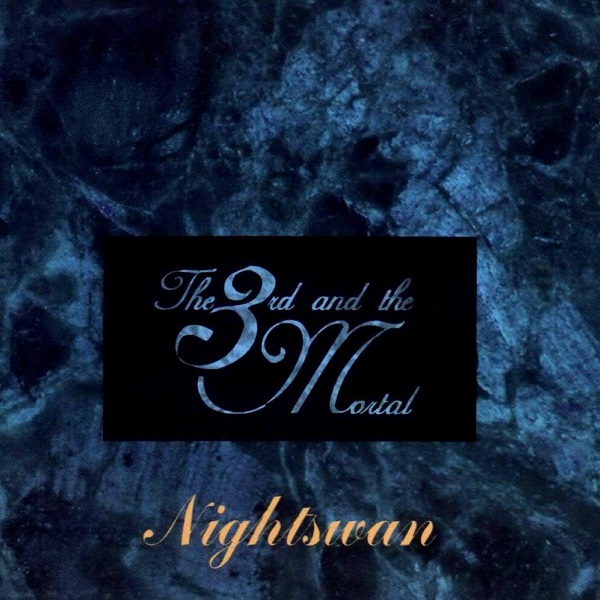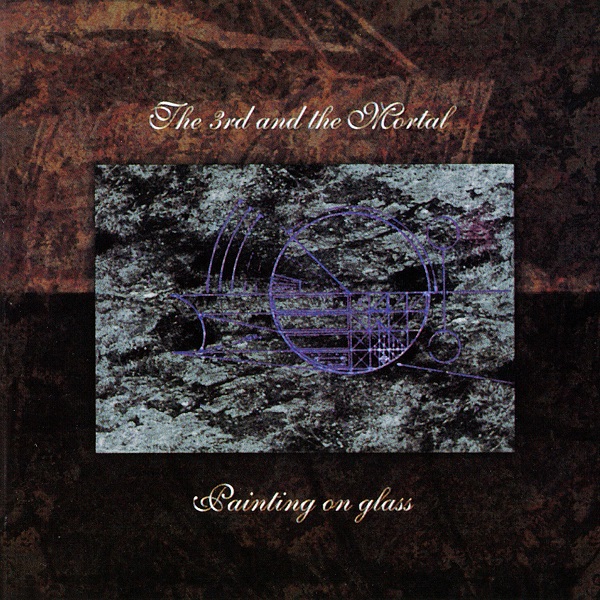
Exposé Online
What's old
Exposé print issues (1993-2011)
- 1 (October 1993)
- 2 (February 1994)
- 3 (May 1994)
- 4 (August 1994)
- 5 (October 1994)
- 6 (March 1995)
- 7 (July 1995)
- 8 (November 1995)
- 9 (March 1996)
- 10 (August 1996)
- 11 (February 1997)
- 12 (May 1997)
- 13 (October 1997)
- 14 (February 1998)
- 15 (July 1998)
- 16 (January 1999)
- 17 (April 1999)
- 18 (November 1999)
- 19 (May 2000)
- 20 (October 2000)
- 21 (March 2001)
- 22 (July 2001)
- 23 (December 2001)
- 24 (April 2002)
- 25 (September 2002)
- 26 (February 2003)
- 27 (August 2003)
- 28 (December 2003)
- 29 (April 2004)
- 30 (September 2004)
- 31 (March 2005)
- 32 (September 2005)
- 33 (May 2006)
- 34 (March 2007)
- 35 (January 2008)
- 36 (October 2008)
- 37 (July 2009)
- 38 (July 2010)
- 39 (Summer 2011)
Reviews
The Third and the Mortal — Nightswan
(VOW 047, 1995, CD)
The Third and the Mortal — Painting on Glass
(VOW 051, 1996/2010, CD)


Scandinavian symphonic rock groups are discernibly gaining their own sound now. Following in the footsteps of groups like Anekdoten, Landberk, and especially White Willow (who could be their Siamese twin), Third & The Mortal are the most gothic in this style and possibly the most original. These are their second EP and album, and are a furthering of their sound – a combination of folky female vocals, walls of guitar effects and a new synthesis of symphonic rock, 4AD styles and ambience. Very much like This Mortal Coil meets Anekdoten in a way, although very drugged. Often the music is practically inaudible, surprising you when guitars come flanging out of the speakers. These two titles are perhaps more mature than their predecessors, and although there’s been a change in the vocals, the results are much the same. I find that the "gothic" atmosphere tends to be a bit overbearing throughout the length of both CDs yet they're diverse within their vision. The titles like "Crystal Orchids" or "Aurora Australis" add a nice tone to the overall feel. Third & The Mortal, due to the popularity of Scandinavian symphonic rock of late, should do well with fans. These are two warm and colorful CDs.
by Mike McLatchey, Published 1996-08-01
Not long ago, you may recall, this Norwegian band gave us their debut releases: the mini-CD Sorrow and its full-length companion Tears Laid In Earth. These were promising but unexceptional. Not so their latest brace of CDs, which are breathtaking to say the least. Original singer Kari Rueslatten left the band. Her replacement is the equally talented but very different vocalist/keyboardist Ann-Mari Edvardsen. While Rueslatten was an excellent singer, her persistently pretty voice sometimes worked against the very dark tone in which the band was (and still is) operating. Edvardsen on the other hand is more of a vocal chameleon, her voice changes to suit the needs of a certain piece, be it Nico-esque chanting (ah, but if only Nico could sing like this!) or Marilyn Horne operatic drama. On Painting on Glass, the band show immense growth since Tears Laid in Earth. The three guitar attack, once a mere gimmick, here becomes a powerful musical force. The blasts of the triple guitar attack on the appropriately titled "Magma" wash over you like powerful waves like the best King Crimson. But thanks to the fact there are multiple guitarists, no Frippertronics or fancy studio tricks are needed to arrive at this miraculous sound. The band have also moved beyond the stark sonic monochrome of "Tears" to glorious living color. Part of the reason for that is the increased role for keyboards – three band members (especially Edvardsen) play digital synths and piano, while three guest players add Mellotron, ARP and pipe organ. Other guests add trombone, didjeridu, and percussion, adding a wealth of texture only hinted at on earlier efforts. Crimson fans will have no problem relating to their first taste of this album, especially as it opens with the intense "Magma" and the equally seething "Commemoration." The rest of the album is more atmospheric, only pulling out the big guns for the sake of drama, and even taking a "world music"-like turn on "Eat the Distance." Some slower sections tend to drag, and it occasionally seems a bit padded (it's a very long album), but there are enough strong passages on Painting on Glass to make it worthwhile.
Nightswan is another mini-CD which predates Painting on Glass. It's really just a teaser for the full-length CD, but since there are no overlapping tracks, there are some must-haves here. The powerhouse ten-minute "Neurosis" is especially noteworthy, and the brief fanfare of "Vavonia - Part 1" is bound to leave you hanging by a thread waiting for Part 2 (which is on Painting on Glass). If you enjoy Painting on Glass the answer is simple, you have to have Nightswan as well.
by Mike Ohman, Published 1996-08-01
Somewhere between Hawkwind at half speed and Ozric Tentacles at quarter impulse lies The 3rd and ghe Mortal – floating out into space at a pace that'll make you swear you're moving in slow motion. In several spots, Painting on Glass sounds like it could even be one of Fripp's Soundscape releases with the airy, operatic female vocals of Ann-Mari Edvardsen on top. This is mood music at its best. The slow tempo of the tracks and the subdued volume give the tracks an interesting energy. It's strange that music that's slow and soft for the most part can have so much intensity. Compared to last year's release, Nightswan, this album sounds more improvised and has a more relaxed, lighter sound. Nightswan sounds more King Crimson influenced and the vocals are much less gothic and angelic sounding than anything on Painting on Glass. This would be perfect music for the soundtrack of some Discovery Channel documentary about floating through space. If you want to get high on music alone, this is the ticket.
by Mike Grimes, Published 1996-08-01
Filed under: New releases, Issue 10, 1995 releases, 2010 releases, 1996 recordings
Related artist(s): The Third and the Mortal
What's new
These are the most recent changes made to artists, releases, and articles.
- Review: Sterbus - Black and Gold
Published 2026-03-03 - Release: Janel Leppin's Ensemble Volcanic Ash - Pluto in Aquarius
Updated 2026-03-02 15:06:51 - Release: Janel Leppin - Slowly Melting
Updated 2026-03-02 15:05:27 - Release: Alister Spence - Always Ever
Updated 2026-03-02 15:04:11 - Release: Let Spin - I Am Alien
Updated 2026-03-02 15:02:41 - Review: Falter Bramnk - Vinyland Odyssee
Published 2026-03-02 - Review: Exit - Dove Va la Tua Strada?
Published 2026-03-01 - Review: Steve Tibbetts - Close
Published 2026-02-28 - Release: We Stood Like Kings - Pinocchio
Updated 2026-02-27 19:24:02 - Release: Stephen Grew - Pianoply
Updated 2026-02-27 19:20:11 - Release: Thierry Zaboitzeff - Artefacts
Updated 2026-02-27 00:16:46 - Review: Kevin Kastning - Codex I & Codex II
Published 2026-02-27 - Release: Zan Zone - The Rock Is Still Rollin'
Updated 2026-02-26 23:26:09 - Release: The Leemoo Gang - A Family Business
Updated 2026-02-26 23:07:29 - Release: Ciolkowska - Bomba Nastoyashchego
Updated 2026-02-26 13:08:55 - Review: Immensity Crumb - Chamber Music for Sleeping Giants
Published 2026-02-26 - Release: The Gatekeepers - Diary of a Teenage Prophet
Updated 2026-02-25 15:55:58 - Review: Mars Lasar - Grand Canyon
Published 2026-02-25 - Listen and discover: Mordecai Smyth will not break your back
Published 2026-02-25
